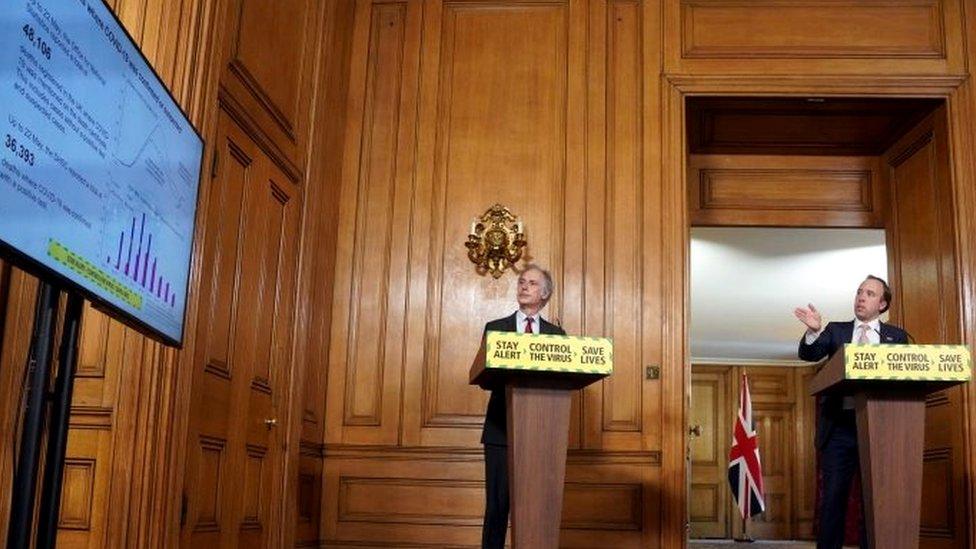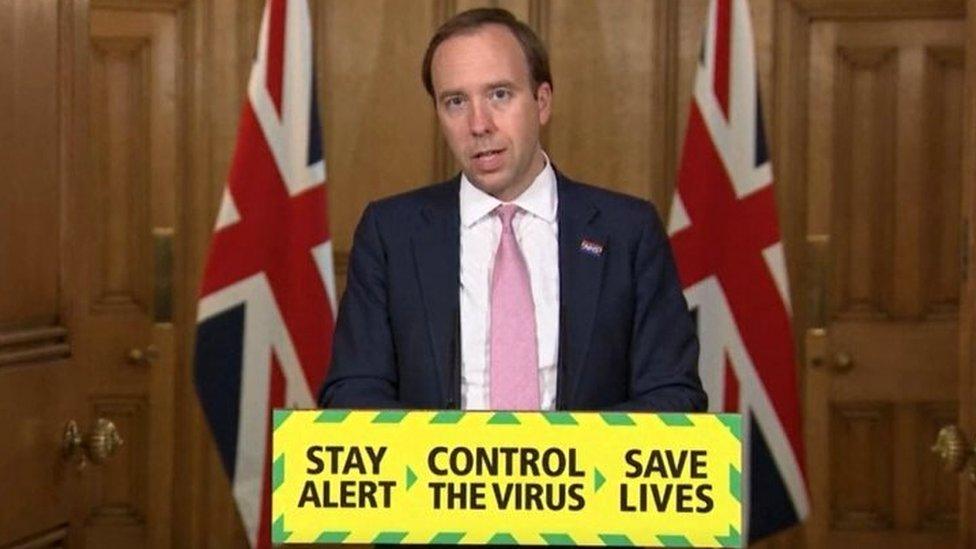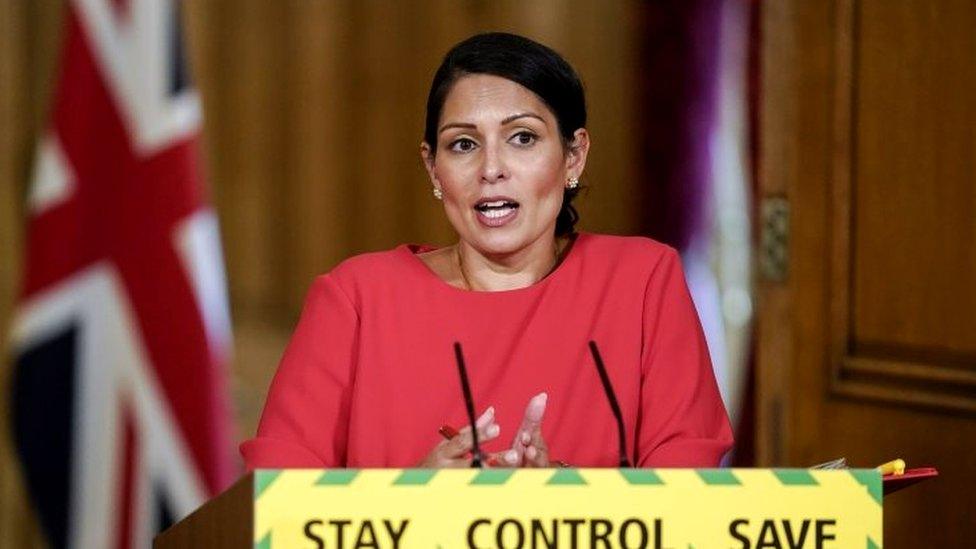Coronavirus: Daily Downing Street press conference scrapped
- Published
- comments

The daily presentation of slides is no more
The daily Downing Street press conference on coronavirus has been stopped, the government has announced.
Boris Johnson led the final regular briefing, flanked by chief advisers Chris Whitty and Sir Patrick Vallance.
From now on televised briefings will be given on an "ad hoc" basis to "coincide with significant announcements," Downing Street said.
It comes as the PM announced an easing of the lockdown in England.
There have been 92 briefings, and two national addresses by the prime minister.
Leading the final briefing, Mr Johnson thanked Prof Whitty and Sir Patrick for their "heroic work in presenting information to the public so clearly and so powerfully".
He added that there will "certainly" be more local outbreaks and "I don't think, therefore, that you have seen the last of us by any means but they will not be happening as often as they have been".
He said all of the information on hospital admissions, death rates and the spread of the virus presented at the daily briefings would still be published on the government website, external.
But Conservative MP and former minister Tobias Ellwood criticised the move, saying regular televised briefings should continue while the UK remained in an "enduring emergency".
Allow X content?
This article contains content provided by X. We ask for your permission before anything is loaded, as they may be using cookies and other technologies. You may want to read X’s cookie policy, external and privacy policy, external before accepting. To view this content choose ‘accept and continue’.
And acting Lib Dem leader Sir Ed Davey said there needed to be the fullest scrutiny of government decisions at what was still "an incredibly crucial stage".
"It's almost like they don't want people asking questions," he tweeted.
The daily briefings started on 16 March, following criticism of a lack of transparency over government plans to stem the spread of the virus.
At the time, the UK death toll from Covid-19 stood at 55 and the government had yet to introduce lockdown measures.
The total number of deaths currently stands at 42,927.
Mr Johnson led the first briefing, flanked by the government's chief medical adviser Chris Whitty and the UK's chief scientific adviser Sir Patrick Vallance, and used it to urge the public to avoid going to pubs and non-essential travel, and work from home if they could.
Boris Johnson led the first daily briefing
The PM led the next four briefings, before handing over to a rotating cast of cabinet ministers, normally accompanied by scientific and medical experts.
The panel talked through slides on hospital admissions, deaths and the government's efforts to prevent the spread of the virus and then took questions from the media, via video conferencing.
Mr Johnson gave a televised address to the nation on the introduction of the lockdown on 23 March, and then limited his appearances at the daily briefings to major announcements.
On Sunday 24 May, he appeared at the daily briefing to defend his chief adviser, Dominic Cummings, following revelations that he had driven 260 miles at the height of the lockdown.
The Saturday and Sunday briefings were scrapped shortly afterwards, due to low ratings.
At the end of April, the panel began taking two questions submitted by members of the public.
Health Secretary Matt Hancock led the most daily briefings, with 26 appearances, followed by Mr Johnson on 16.

Matt Hancock holds the record for the most appearances
Foreign Secretary Dominic Raab - who filled in for Mr Johnson when he was in hospital with coronavirus - led 12 briefings, with Transport Secretary Grant Shapps, Business Secretary Alok Sharma and Housing Secretary Robert Jenrick hosting six each.
Chancellor Rishi Sunak led five briefings - the same number as Cabinet Secretary Michael Gove. Environment Secretary George Eustice, Education Secretary Gavin Williamson and Culture Secretary Oliver Dowden appeared a handful of times each.
Home Secretary Priti Patel was the only female minister to take a turn at the podium, with three appearances.

Priti Patel was the only female minister to appear at the podium
In recent weeks, ministers have increasingly been appearing on their own, without scientific or medical advisers.
Deputy chief medical officer Prof Jonathan Van-Tam last appeared at a briefing on 30 May, while Dr Jenny Harries, deputy chief medical officer for England, made her first appearance in more than three weeks on Monday.